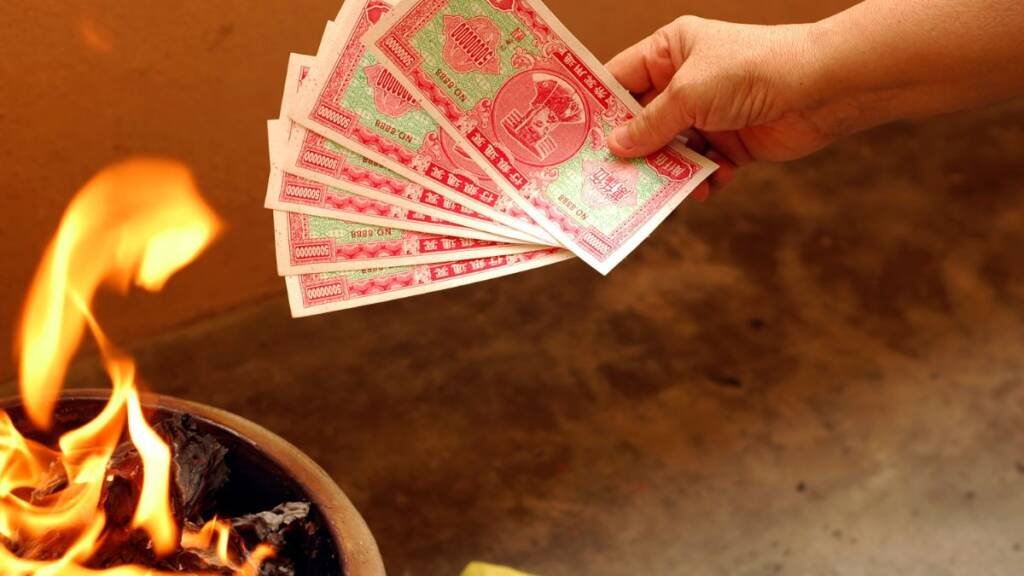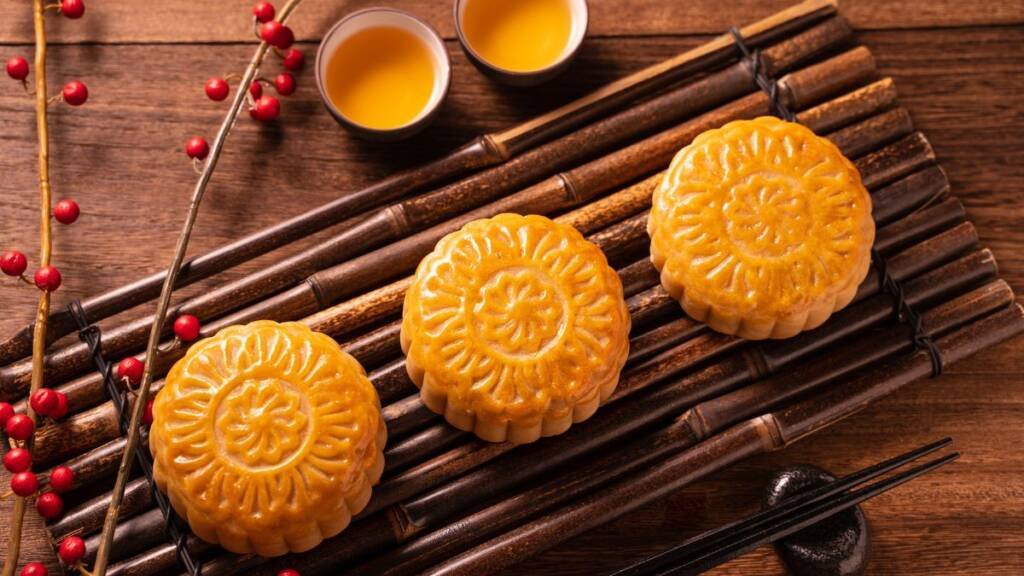Ghost Month, also known as the Hungry Ghost Festival, is one of the most significant traditional observances in Chinese culture. This period, deeply rooted in beliefs about the afterlife and ancestor worship, takes place during the seventh month of the lunar calendar. For those unfamiliar, Ghost Month might appear as a time of superstition, but to many in Chinese communities worldwide, it is a time of profound respect, remembrance, and reverence for the spirits of the deceased.
What is Ghost Month?
Ghost Month, or Guǐ Yuè (鬼月), occurs during the seventh lunar month, usually between mid-August and mid-September in the Gregorian calendar. The central belief is that during this time, the gates of the underworld open, allowing spirits and ghosts to enter the human world. These spirits include those of deceased ancestors, as well as wandering souls who have no family to care for them.
The pinnacle of Ghost Month is the Hungry Ghost Festival (中元节, Zhōngyuán Jié), observed on the 15th day of the month. This day is dedicated to honoring the dead, with numerous rituals and offerings made to appease the spirits.
The Cultural Significance of Ghost Month
Ghost Month is more than just a period of mourning; it is a time to reflect on the cyclical nature of life and death. In Chinese culture, respecting one’s ancestors is paramount, and Ghost Month serves as a reminder of the importance of family ties that transcend life and death.
Ancestor Worship
During Ghost Month, families take the opportunity to honor their ancestors through various rituals. This practice is deeply rooted in the belief that the deceased have the power to influence the fortunes of the living. By showing respect and making offerings, the living seek protection and blessings from their ancestors.
The Concept of Hungry Ghosts
The term “Hungry Ghosts” refers to spirits that are believed to be suffering in the afterlife due to their past misdeeds or because they have no living descendants to care for them. These spirits are thought to be in a state of constant hunger, symbolizing their insatiable desires and unfulfilled needs. The rituals performed during Ghost Month aim to alleviate their suffering and prevent them from causing harm to the living.
Key Rituals and Practices During Ghost Month
The rituals of Ghost Month are elaborate and varied, reflecting the deep spiritual beliefs and traditions of the Chinese culture. Here are some of the key practices:
1. Offerings and Sacrifices
- Food Offerings: Families prepare and place offerings of food, fruits, and tea on altars both at home and in temples. These offerings are intended to appease the spirits and provide them with sustenance.
- Burning Joss Paper: Also known as “hell money,” joss paper is burned to provide the spirits with material goods in the afterlife. The belief is that these paper items transform into real items in the spirit world, ensuring that the deceased have everything they need.
2. Nianfo (Reciting Buddha’s Name)
- In Buddhist tradition, reciting the name of Amitabha Buddha is an essential practice during Ghost Month. It is believed that by doing so, the living can help the spirits find peace and possibly rebirth in a better realm.
3. Lighting Lanterns
- Lanterns are lit and floated on rivers to guide lost spirits back to the underworld. This practice, particularly popular in Taiwan, is both a visually striking and spiritually significant ritual that symbolizes light guiding the way for wandering souls.
4. Street Performances
- In many regions, including Taiwan, Malaysia, and Singapore, temporary stages are set up for performances known as “Getai” (歌台), featuring Chinese opera, music, and dance. These performances are meant to entertain the spirits, and the first rows of seats are often left empty as a sign of respect for the ghostly audience.

Taboos During Ghost Month
Ghost Month is also marked by numerous taboos, reflecting the fear of offending or attracting malevolent spirits. Some of the most common taboos include:
1. Avoiding Late-Night Activities
- It is advised to stay indoors after dark to avoid encounters with wandering spirits. Nighttime is considered the most active time for spirits, and staying out late could invite misfortune.
2. Postponing Major Life Events
- Many Chinese people avoid holding weddings, moving houses, or starting new businesses during Ghost Month, as it is considered an inauspicious time. The belief is that the presence of spirits could bring bad luck to these significant life events.
3. Avoiding Swimming
- Swimming is discouraged during Ghost Month, particularly in open waters, as it is believed that water spirits may try to drag swimmers down, leading to drowning incidents.
4. No Whistling
- Whistling is thought to attract spirits, so it is avoided during this period.
Regional Variations of Ghost Month
While Ghost Month is observed widely across Chinese communities, the specific customs and rituals can vary by region:
- Taiwan: Ghost Month in Taiwan is a significant cultural event, with large-scale ceremonies, parades, and public performances. Temples hold extensive rituals, and offerings are made on a grand scale.
- Malaysia and Singapore: The Chinese communities in these countries observe Ghost Month with rituals similar to those in China and Taiwan, but with local adaptations. Getai performances are particularly popular, drawing large crowds of both the living and, it is believed, the spirits.

The End of Ghost Month
As Ghost Month concludes, rituals are performed to send the spirits back to the underworld. These final ceremonies include burning more joss paper and food offerings, ensuring that the spirits are well-provided for as they return to the afterlife. Families clean their homes and altars, signaling a return to normalcy.
Conclusion
Ghost Month is a profound expression of the Chinese cultural emphasis on ancestor worship and respect for the deceased. It is a time when the boundaries between the living and the spiritual worlds are believed to blur, requiring careful observance of rituals and customs. Through these practices, the living honor their ancestors, seek protection from malevolent spirits, and reflect on the transient nature of life. This centuries-old tradition remains a vital part of Chinese cultural identity, offering a unique glimpse into the spiritual beliefs that continue to shape the lives of millions.
深入了解中元节:探索华人传统文化
中元节,又称为“鬼月”或“盂兰盆节”,是华人文化中最重要的传统习俗之一。这个节日源于对来世和祖先崇拜的信仰,每年在农历七月期间举行。对那些不熟悉这个传统的人来说,鬼月或许显得迷信,但对于全球华人社区而言,这是一个充满尊敬、缅怀和对逝者的深切敬意的时刻。
什么是鬼月?
鬼月,或称“鬼月”(Guǐ Yuè,鬼月),通常在农历七月发生,对应公历的八月中旬到九月中旬。核心信仰是此时阴间之门打开,让灵魂和亡灵进入人间。这些灵魂包括已故的祖先,也包括那些没有家人祭奠的孤魂野鬼。
鬼月的高潮是中元节(Zhōngyuán Jié,中元节),在农历七月十五举行。这一天专门用来祭奠亡灵,通过丰富的仪式和供品来安抚这些灵魂。
鬼月的文化意义
鬼月不仅是哀悼的时期,它也是一个反思生死轮回的时刻。在华人文化中,尊敬祖先至关重要,鬼月提醒人们家族关系的重要性,这种联系超越了生死。
祖先崇拜
在鬼月期间,家庭会通过各种仪式来祭奠祖先。这种做法源于人们相信逝去的亲人有能力影响生者的福祉。通过表示尊敬和献上供品,生者寻求祖先的庇佑和祝福。
饿鬼的概念
“饿鬼”一词指的是那些在来世受苦的灵魂,因为他们在生前的恶行或没有活着的后代祭奠,导致他们处于永远的饥饿状态,象征着他们无法满足的欲望和未竟的需求。在鬼月的仪式中,人们试图缓解这些灵魂的痛苦,防止他们对生者造成伤害。
鬼月期间的主要仪式和习俗
鬼月的仪式丰富多样,反映了华人文化深厚的精神信仰和传统。以下是一些主要的习俗:
1. 供品和祭品
- 食物供品: 家庭会准备食物、水果和茶等供品,供奉在家中的祭坛或寺庙中。这些供品旨在安抚灵魂,为它们提供所需的食物。
- 烧纸钱: 又称“冥纸”或“纸钱”,人们通过烧纸钱为亡灵提供物质所需。人们相信这些纸钱在阴间能化为实物,确保逝者在阴间生活无虞。
2. 念佛
- 在佛教传统中,念“阿弥陀佛”佛号是鬼月的一个重要习俗。人们相信通过这种方式,生者可以帮助亡灵找到安宁,并可能转生到更好的境界。
3. 点灯放河灯
- 鬼月期间,人们会在河流中点亮并放置灯笼,引导迷途的灵魂回到阴间。这一习俗在台湾尤为流行,象征着用光明为徘徊的亡魂指路,既富有视觉冲击力,又具有深厚的精神意义。
4. 街头表演
- 在台湾、马来西亚和新加坡等地,临时舞台会搭建起来进行被称为“歌台”的表演,包括中国戏剧、音乐和舞蹈。这些表演旨在娱乐亡灵,前排座位常常空着,以示对亡灵观众的尊敬。
鬼月及中元节不仅是华人文化中的重要节日,也是祭祖与反思生命意义的时刻。这段时期的仪式与习俗让人们表达对逝去亲人的怀念,延续了对家族关系的珍视和敬畏。

鬼月禁忌
鬼月期间,有许多禁忌,反映了人们对冒犯或招引不良灵魂的忌惮。以下是一些常见的禁忌:
1. 避免深夜活动
- 建议日落后待在室内,以避免与游荡的灵魂相遇。晚上被认为是灵魂活动最频繁的时间,外出可能会带来不幸。
2. 推迟重大人生事件
- 很多华人避免在鬼月举行婚礼、搬家或创业,因为这个时期被认为不吉利。人们认为鬼魂的存在可能会给这些重大事件带来厄运。
3. 避免游泳
- 鬼月期间,特别是在开阔水域游泳被视为不安全。人们相信水鬼可能会试图拖人入水,导致溺水事故。
4. 不吹口哨
- 吹口哨被认为会吸引灵魂,因此在此期间应避免吹口哨。
鬼月的地区差异
虽然鬼月在全球华人社区中广泛被庆祝,但具体的习俗和仪式会因地区而有所不同:
- 台湾: 台湾的鬼月是一项重要的文化活动,伴有大型仪式、游行和公众表演。寺庙会举行丰富的仪式,供品规模宏大。
- 马来西亚和新加坡: 这些国家的华人社区在鬼月期间的仪式与中国和台湾类似,但有本地的适应。歌台表演特别受欢迎,吸引大量的观众,包括活人和被认为会前来的灵魂。

鬼月的结束
随着鬼月的结束,人们会举行一系列仪式将灵魂送回阴间。这些最后的仪式包括焚烧更多的纸钱和供奉食物,以确保灵魂在返回来世时得到充分的供养。家庭会打扫房屋和祭坛,象征生活恢复正常。
结语
鬼月深刻地体现了中华文化对祖先崇拜和对已故之人的尊重。在这一时期,被认为阴阳界限模糊,因此需要谨慎遵循一系列仪式和习俗。通过这些传统,人们表达对祖先的敬意,寻求对恶灵的庇护,并反思生命的短暂。这个延续了数百年的传统依然是中华文化身份的重要组成部分,展示了数百万华人信仰体系中的独特一面,影响至今。
Ghost Month, also known as the Hungry Ghost Festival, is one of the most significant traditional observances in Chinese culture. This period, deeply rooted in beliefs about the afterlife and ancestor worship, takes place during the seventh month of the lunar calendar. For those unfamiliar, Ghost Month might appear as a time of superstition, but to many in Chinese communities worldwide, it is a time of profound respect, remembrance, and reverence for the spirits of the deceased.
What is Ghost Month?
Ghost Month, or Guǐ Yuè (鬼月), occurs during the seventh lunar month, usually between mid-August and mid-September in the Gregorian calendar. The central belief is that during this time, the gates of the underworld open, allowing spirits and ghosts to enter the human world. These spirits include those of deceased ancestors, as well as wandering souls who have no family to care for them.
The pinnacle of Ghost Month is the Hungry Ghost Festival (中元节, Zhōngyuán Jié), observed on the 15th day of the month. This day is dedicated to honoring the dead, with numerous rituals and offerings made to appease the spirits.
The Cultural Significance of Ghost Month
Ghost Month is more than just a period of mourning; it is a time to reflect on the cyclical nature of life and death. In Chinese culture, respecting one’s ancestors is paramount, and Ghost Month serves as a reminder of the importance of family ties that transcend life and death.
Ancestor Worship
During Ghost Month, families take the opportunity to honor their ancestors through various rituals. This practice is deeply rooted in the belief that the deceased have the power to influence the fortunes of the living. By showing respect and making offerings, the living seek protection and blessings from their ancestors.
The Concept of Hungry Ghosts
The term “Hungry Ghosts” refers to spirits that are believed to be suffering in the afterlife due to their past misdeeds or because they have no living descendants to care for them. These spirits are thought to be in a state of constant hunger, symbolizing their insatiable desires and unfulfilled needs. The rituals performed during Ghost Month aim to alleviate their suffering and prevent them from causing harm to the living.
Key Rituals and Practices During Ghost Month
The rituals of Ghost Month are elaborate and varied, reflecting the deep spiritual beliefs and traditions of the Chinese culture. Here are some of the key practices:
1. Offerings and Sacrifices
- Food Offerings: Families prepare and place offerings of food, fruits, and tea on altars both at home and in temples. These offerings are intended to appease the spirits and provide them with sustenance.
- Burning Joss Paper: Also known as “hell money,” joss paper is burned to provide the spirits with material goods in the afterlife. The belief is that these paper items transform into real items in the spirit world, ensuring that the deceased have everything they need.
2. Nianfo (Reciting Buddha’s Name)
- In Buddhist tradition, reciting the name of Amitabha Buddha is an essential practice during Ghost Month. It is believed that by doing so, the living can help the spirits find peace and possibly rebirth in a better realm.
3. Lighting Lanterns
- Lanterns are lit and floated on rivers to guide lost spirits back to the underworld. This practice, particularly popular in Taiwan, is both a visually striking and spiritually significant ritual that symbolizes light guiding the way for wandering souls.
4. Street Performances
- In many regions, including Taiwan, Malaysia, and Singapore, temporary stages are set up for performances known as “Getai” (歌台), featuring Chinese opera, music, and dance. These performances are meant to entertain the spirits, and the first rows of seats are often left empty as a sign of respect for the ghostly audience.

Taboos During Ghost Month
Ghost Month is also marked by numerous taboos, reflecting the fear of offending or attracting malevolent spirits. Some of the most common taboos include:
1. Avoiding Late-Night Activities
- It is advised to stay indoors after dark to avoid encounters with wandering spirits. Nighttime is considered the most active time for spirits, and staying out late could invite misfortune.
2. Postponing Major Life Events
- Many Chinese people avoid holding weddings, moving houses, or starting new businesses during Ghost Month, as it is considered an inauspicious time. The belief is that the presence of spirits could bring bad luck to these significant life events.
3. Avoiding Swimming
- Swimming is discouraged during Ghost Month, particularly in open waters, as it is believed that water spirits may try to drag swimmers down, leading to drowning incidents.
4. No Whistling
- Whistling is thought to attract spirits, so it is avoided during this period.
Regional Variations of Ghost Month
While Ghost Month is observed widely across Chinese communities, the specific customs and rituals can vary by region:
- Taiwan: Ghost Month in Taiwan is a significant cultural event, with large-scale ceremonies, parades, and public performances. Temples hold extensive rituals, and offerings are made on a grand scale.
- Malaysia and Singapore: The Chinese communities in these countries observe Ghost Month with rituals similar to those in China and Taiwan, but with local adaptations. Getai performances are particularly popular, drawing large crowds of both the living and, it is believed, the spirits.

The End of Ghost Month
As Ghost Month concludes, rituals are performed to send the spirits back to the underworld. These final ceremonies include burning more joss paper and food offerings, ensuring that the spirits are well-provided for as they return to the afterlife. Families clean their homes and altars, signaling a return to normalcy.
Conclusion
Ghost Month is a profound expression of the Chinese cultural emphasis on ancestor worship and respect for the deceased. It is a time when the boundaries between the living and the spiritual worlds are believed to blur, requiring careful observance of rituals and customs. Through these practices, the living honor their ancestors, seek protection from malevolent spirits, and reflect on the transient nature of life. This centuries-old tradition remains a vital part of Chinese cultural identity, offering a unique glimpse into the spiritual beliefs that continue to shape the lives of millions.



